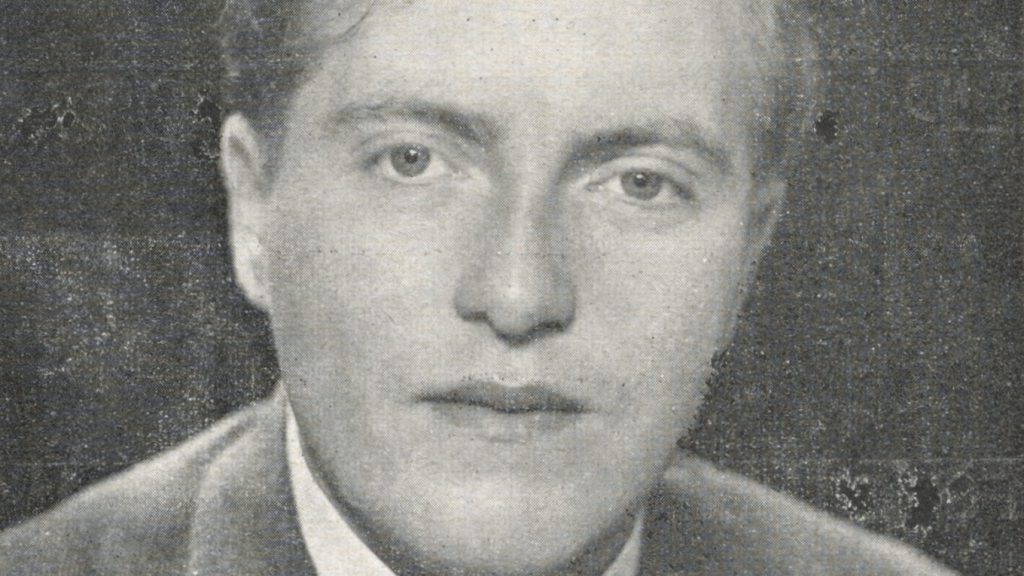MS 78 The Watt Collection

Special Collections at Queen’s University is pleased to announce that we have a new manuscript collection ready for viewing.
MS 78, The Watt Collection, are the personal papers of Samuel Watt, a QUB graduate who went on to become deeply involved with the Northern Ireland Labour Party throughout the 1950’s and 60’s. The collection comprises several thousand documents relating to his time as a party activist, his unsuccessful attempts to stand for the party in several elections, his time in London where he founded the Ulster Labour Group and a great deal more.
The history of the Northern Ireland Labour Party in this period is a fascinating but often overlooked period in Northern Irish History. Founded in the years following partition the NILP sought to form an anti-sectarian alternative to both unionism and nationalism, taking no stance on the constitutional status of Northern Ireland and instead putting issues of class to the fore of its programme. It held with this position until 1949 when it adopted a pro-union position while still attempting to appeal to both Unionist and Nationalist working-class voters with its social and economic programme. While this initially led to electoral setbacks the party managed to claw back support over the following decade, mostly by winning working-class protestant voters away from the Unionist Party, leading to their greatest period of success in the late 50’s and early 1960’s. The growth of the civil rights movement complicated the rise of the NILP. While some prominent members such as Paddy Devlin and Eamonn McCann became central to the civil rights movement, the party overall took a cautious approach to the street protests, with Devlin condemning the party’s position as “scandalous”. This approach, combined with the descent into conflict from 1969 onwards marked the beginning of the end for the party, as voters on both sides retreated to voting along sectarian lines. The party’s share of the vote dropped from 20.9% in 1965 to just 8.1% in 1969. This decline continued over the coming years until a 1987 merger with several other groups saw them make one last, unsuccessful attempt at a resurrection, after which the project was abandoned.
This collection was discovered in the Sociology Department in QUB and transferred to Special Collections for preservation a number of years ago; after being delayed by the pandemic it has finally been catalogued and made ready for use in research. On inspection it has turned out to be a phenomenal cache of information on the NILP and wider Northern Ireland (NI) trade union movement, NI politics in general, student life at QUB in the 1950s, the NI civil rights movement, international Cold War politics, and more besides. Documents relating to the NILP include, but are not limited to, a vast number of documents in relation to their annual conferences from 1951 to 1965, internal financial documents, election ephemera, policy documents, pamphlets produced by the party, propaganda, and a vast quantity of correspondence sent to and from Watt by other party figures, the most notable of which are a vast quantity of personal and official letters from Samuel Napier, and a smaller quantity from David Bleakley. Watt was also a schoolteacher at Annadale Grammar and an active member of the Irish National Teacher’s Organisation; as such there are a great number of documents relating to this organisation as well, and a smaller number relating to Irish Congress of Trade Unions. In addition to this there are also documents from the Christian Socialist Fellowship at QUB, the Student Labour Federation, International Union of Socialist Youth, and other student organisations. There is an extensive selection of documents relating to the Belfast Fabian Society and even documents relating to the Central Intelligence Agency front organisation the European Youth Campaign, and its Soviet backed opposite number, the World Festival of Youth and Students. Beyond this there are over 200 miscellaneous items that defy easy categorisation but cover a wide range of political and other topics.
The full detail of what is contained in the collection can be found in the Watt Collection listing.
Anyone interested in coming to view items from this collection can make an appointment to do so by contacting us at specialcollections@qub.ac.uk


Re Watt collection – That’s great news QUB – very proud of his contribution to politics in both London and Belfast. Philip Watt (son).